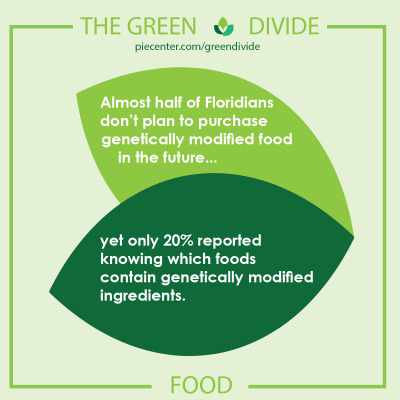
While many Floridians don’t plan to purchase genetically modified food, survey results indicate that they may not have the knowledge necessary to act on that intention. The most common genetically modified fruits and vegetables produced at the commercial scale and available in grocery stores include squash, corn, soybeans, sugar beets, and papayas (Fernandez-Cornejo et al., 2014). But the majority of foods that contain genetically modified ingredients are processed foods with ingredients derived from corn, soybeans, canola, and cotton (Byrne et al., 2014). Today, about 90% of the planted acres of corn, soybeans, and cotton are genetically modified (Fernandez-Cornejo et al., 2014). In the past 20 years, the U.S. Food and Drug Administration has evaluated 148 genetically modified foods and has approved for direct use as food or as a food additive those previously listed as well as alfalfa, chicory, flax, melon, rice, plum, potato, tomato, and wheat (FDA, 2014a; International Service for the Acquisition of Agri-biotech Applications, 2013). The following links provide more information about genetically modified foods and Americans’ knowledge of them:
- Genetically engineered crops in the US
- Americans’ knowledge of genetically modified foods
- Examples of foods containing GMOs
















